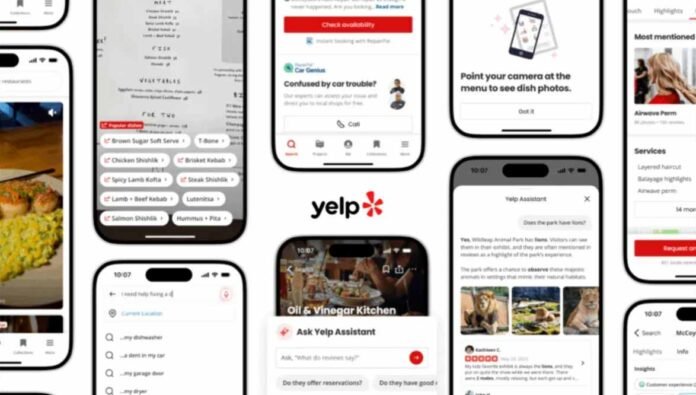- Yelp launches a new AI Assistant for faster, smarter answers in its mobile app.
- The tool uses AI to summarize reviews and even identify menu items with Menu Vision.
- While convenient, the change may reduce user motivation to write detailed reviews.
- Yelp’s shift mirrors a broader tech trend toward AI-driven summaries and instant results.
Yelp is entering a bold new phase with its upgraded AI Assistant. The company wants users to find quick, reliable answers without scrolling through endless reviews. Available in Yelp’s mobile app, the new feature can chat by text or voice and even use your camera to identify dishes through a tool called Menu Vision.
This assistant can instantly interpret a restaurant’s menu, show photos of the dishes, and pull up relevant snippets from real reviews. The idea is simple: users get instant, fact-based answers drawn from Yelp’s huge database of user contributions.
From Crowdsourced Chaos to AI Clarity
For years, Yelp’s strength has been its chaotic yet authentic user reviews. Readers could spend hours diving into stories about disastrous brunches or glowing praise for waitstaff who saved the day. That mix of opinions made Yelp a trusted place to find human perspectives, not just star ratings.
The new AI Assistant changes that experience. It organizes user data into short, polished responses, stripping away the noise and emotion of traditional reviews. Yelp says it is not erasing the human element, only presenting it in a clearer way. But it does raise a question: will users still feel motivated to write reviews if the AI summarizes them neatly?
Menu Vision Brings Visual Search to Dining
The Menu Vision feature could be the most exciting part of Yelp’s update. You can point your phone at a menu, and the AI will instantly display photos of real dishes, along with prices and mini reviews. There’s no need to type in dish names or scroll through long threads.
This kind of visual convenience could make dining decisions easier. Yet it also changes the way users interact with Yelp. Instead of reading long, heartfelt reviews, people will now see brief overviews and sentiment snapshots. For many, that may be enough. For others, it removes the personal flavor that made Yelp stand out.
The Push Toward Instant Answers
Yelp’s shift mirrors a wider trend across tech platforms. Companies that once relied heavily on user-generated content are turning to AI to make information faster and more accessible. Google is embedding AI across its search tools, Amazon uses AI summaries for product reviews, and even forums like Stack Overflow are being reshaped by AI summaries.
For Yelp, the appeal is clear. It has years of valuable data from millions of users. By turning that information into quick, digestible answers, Yelp can make the app more efficient and engaging. For users, it means less time reading and more time deciding where to go.
What Happens to the Human Voices
The biggest question is whether the community that built Yelp will continue to participate. The AI Assistant still cites its sources, allowing users to trace responses back to original reviews. But most people may never click through. If fewer users post reviews, the very foundation of Yelp’s AI could weaken over time.
For longtime Yelp fans, the app’s transformation might feel bittersweet. The spontaneous, sometimes hilarious reviews that gave Yelp its character could fade behind clean AI summaries. While the Assistant makes finding a restaurant easier than ever, it risks flattening the emotional and unpredictable essence that once made Yelp unique.
Yelp’s gamble reflects a broader shift in how we interact with information online. The platform is betting that speed and clarity matter more than storytelling. Whether that approach will strengthen or dilute its appeal remains to be seen.
Follow TechBSB For More Updates

